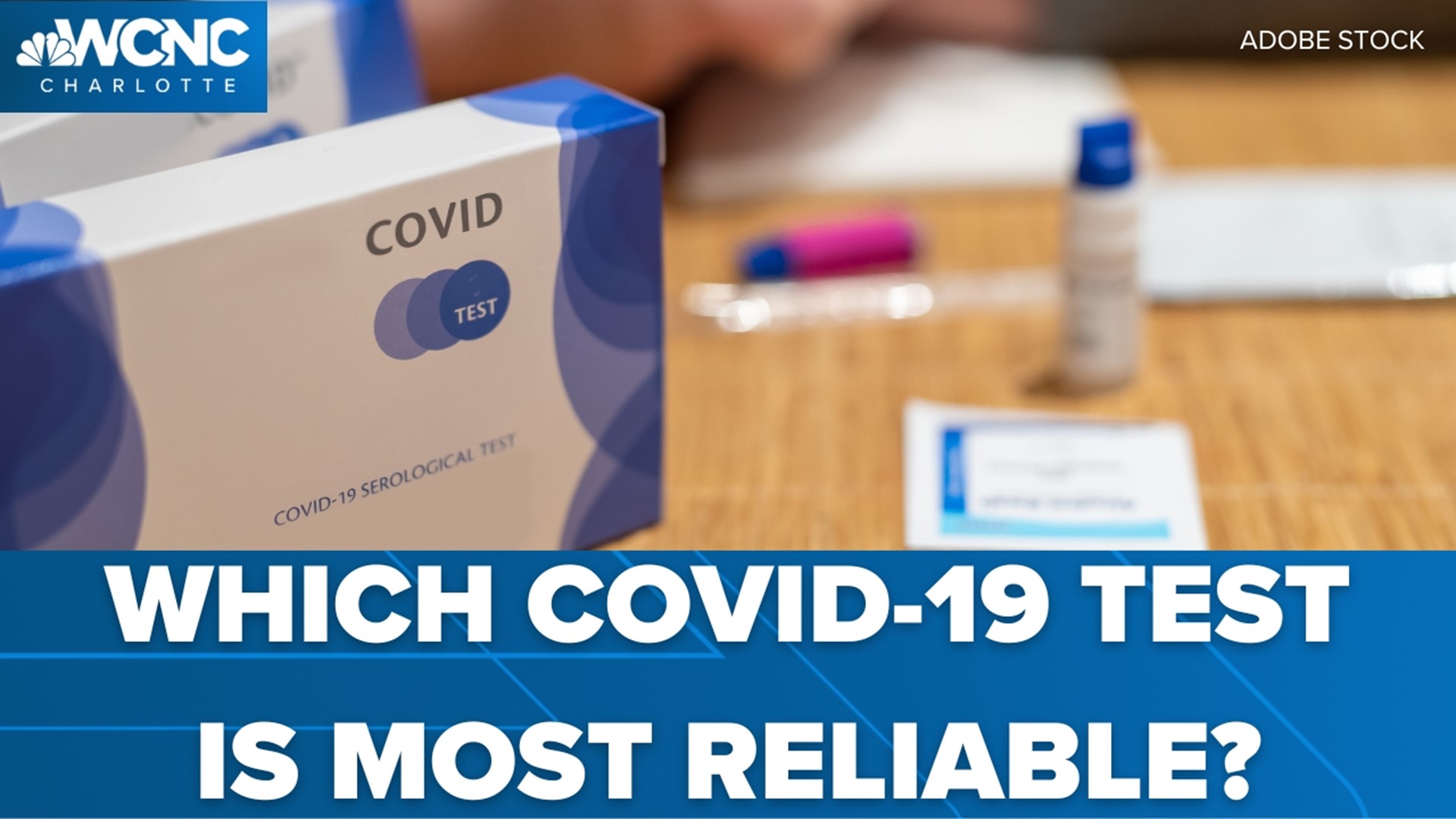MECKLENBURG COUNTY, N.C. — As COVID-19 trends in Mecklenburg County show signs of plateauing, experts say the virus is here to stay, and there will continue to be periods of higher transmission.
Doctors say that means testing will remain an important tool.
COVID-19 tests are just a snapshot in time. Experts say the type of test used, and when it’s used, can determine the result and if it’s accurate.
At-home rapid antigen tests have been a game changer in the pandemic. There’s no need to wait in a long line or days for results when a self-swab test can be done with results in minutes. But are the at-home rapid tests many have come to rely on accurate enough?
“The truth is that no test is perfect,” Dr. Dan Rhoads with the Cleveland Clinic said.
There are two main types of tests used in the pandemic: PCR and antigen.
Research published by the Journal of the American Medical Association suggests rapid antigen tests give many false negative results. In a study of Stanford athletes, only 63% of positive cases were caught on antigen tests. But the accuracy varied significantly depending on whether or not the person testing was symptomatic.
“Antigen tests basically aren’t quite as sensitive, meaning it takes more viral particles, more viral material to trigger a positive test,” Dr. Charles Bregier, Novant Health’s medical director, said.
Bregier added the amount of virus a person is shedding can change as their body reacts, which is why test results can change from day to day.
PCR tests, which have been the standard through much of the pandemic, are much more sensitive and don’t need as much viral material to correctly produce a positive test.
“If you’re still concerned because you’re having significant fever, you’re having a significant cough and you have another negative test, maybe it’s a good idea to go somewhere and have a PCR test done just to be safe,” Bregier said.
But the at-home tests are still a useful tool. Research shows antigen tests are less likely to give a false positive result.
“Nothing is absolute, but generally speaking, if it’s a positive antigen test, that usually turns out to be true,” Rhoads said. “Where we know that antigen tests struggle is in their sensitivity. So, if you test negative there’s still a chance that you could have COVID.”
Doctors say the varying dependability of tests points to why they’re just one tool in the arsenal of ways to prevent and slow the spread of COVID-19.

